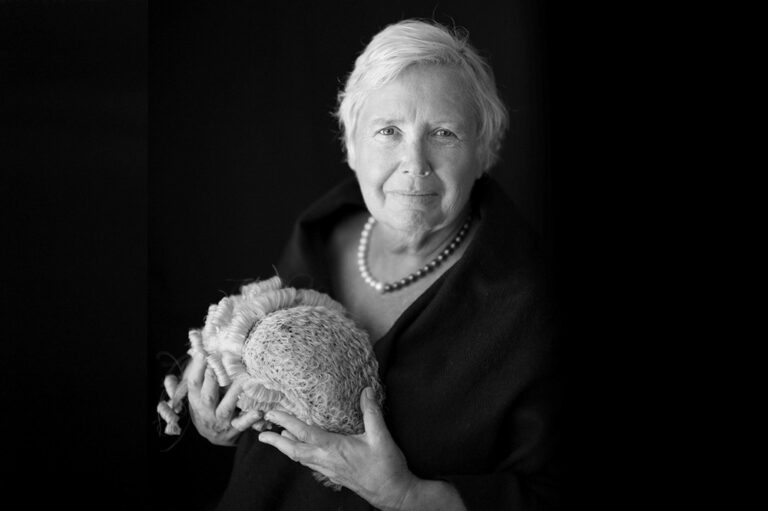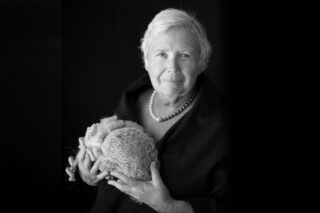- Entry type: Person
- Entry ID: AWE5714
Gearin, Sally
- Birth name Tait, Sally May

- Occupation Barrister, Lawyer, Solicitor
Summary
Admitted to practice in NSW in the early 1980s and having developed a strong reputation in personal injury law, Sally Gearin was recruited specifically to Darwin by the Northern Territory Attorney General’s Department in 1986.
Rising through the ranks to become a senior litigation solicitor, she was called to the Bar in late 1989 by the then Head of William Forster Chambers, Trevor Riley QC, later to become Chief Justice Trevor Riley.
Relishing the opportunity to back herself, and openly lesbian since 1978, Sally became the first woman to go to the Bar in the Northern Territory. She developed a vibrant practice and remained there for 20 years until her retirement in 2010. Having won more than 90% of her cases at trial, she was satisfied she had justified the faith of those colleagues who supported her early in her career.
Always active in pro bono, she worked with others to establish the first women’s refuge in Darwin in 1988 and helped establish community legal services and refugee advocacy in the 1990s. In 1992 she was awarded a fellowship to travel to the USA with Judy Harrison, another woman lawyer, to research responses to domestic violence. Their subsequent book and recommendations were a blueprint for policy responses in the mid 1990s both in the Territory and nationwide.
Sally currently (in 2016) sits as a part time legal member of a number of Tribunals in the Northern Territory.
Sally Gearin was interviewed by Nikki Henningham in the Trailblazing Women and the Law Oral History Project. For details of the interview see the National Library of Australia CATALOGUE RECORD.
Details
Born in Sydney to Ellen (nee) Dempsey and Alan Louvain Tait, Sally attended St Kevin’s Primary School at Eastwood and then at Our Lady Of Mercy College Parramatta. Going to boarding school at age 14, she relished the nurturing of some of the nuns, who created a community of stability, intellectual pursuit in an environment where ‘daring to be different’ was celebrated, not vilified.
Awarded a Commonwealth Scholarship to attend ANU to study law in 1967, she embraced the student politics of the late 1960s together with the drug and drop out culture of the time. Returning to Sydney, Sally left her legal studies and went bush, got married and at 23 had a baby while pursuing the hippy lifestyle.
Realizing eventually that this was not sustainable, and wanting to give her son the opportunities that had been given to her, she returned to Sydney to complete her legal studies. She became open about her sexuality in 1978 when she was 27 years old. It was perhaps the hardest thing to do, Sally says, to have the disapproval of many, including her mother, required a depth of courage in those days that steeled her for the difficult path ahead. Fortunately, she had a few wonderful male mentors in Sydney, who guided her through the often stormy waters of the male dominated profession she had chosen.
At the Attorney-General’s Department in Darwin, she was involved in some major commercial and administrative law cases that broadened and deepened her legal experience.
When Trevor Riley asked her to join the Bar at William Forster Chambers in 1989, she was well supported by the senior legal ranks of the Attorney-General’s department, Peter Conran and Meredith Harrison. They made it known that if she wanted to come back to Government, she would be always welcome.
Once at the Bar she was initially briefed mostly by local women solicitors in the Northern Territory. Her practice at the bar soon expanded to not only personal injury work, but also administrative law, family law and human rights law. In commenting on this, Sally said … ‘It was difficult to know if the male solicitors did not brief you because you were a woman, because you were a lesbian, because they didn’t like you or because they didn’t think you were any good.’ This male exclusion attitude changed after a few years as Sally started winning cases at trial.
As well as developing her practice, Sally was involved in important community and advocacy organisations. She was a founder of Dawn House, Darwin’s first Women’s Refuge, a founder of the NT Women Lawyers Association and a founder of the Australian Women Lawyers Association. She was also a founding editor of the Northern Territory Law Reports and President of the Northern Territory Chapter of the International Commission of Jurists. In this latter role she assisted with the establishment of the first Legal Aid office in Dili, Timor Leste, and was an observer at the International War Crimes Tribunals held there in during the United Nations administered transition to that country’s independence in May 2002.
As mentioned previously, pro bono work has always been an important part of her practice, in both Sydney and Darwin. The motivation has always been quite simple, Sally says; …’I developed my passion for justice mostly by seeing injustice and powerlessness and wanting to do something about it’.
In a 2010 reflection on how the arrival of women improved the culture of the NT Bar, Colin McDonald QC described Sally as a ‘pioneer’ whose arrival at chambers ‘brought a maturity, a depth and a democratic legitimacy to the contemporary life of Chambers…[as well as] a quality of life on a daily basis.’
Motivated by a desire and passion for the role of women in her profession, Sally represents the strength and determination necessary to be successful as a woman barrister and trailblazer.
Archival resources
Digital resources
Published resources
-
Resource
- Trove: Gearin, Sally (1949-), http://nla.gov.au/nla.party-1692761
-
Site Exhibition
- Australian Women Lawyers as Active Citizens, http://www.womenaustralia.info/lawyers/biogs/AWE5714b.htm
